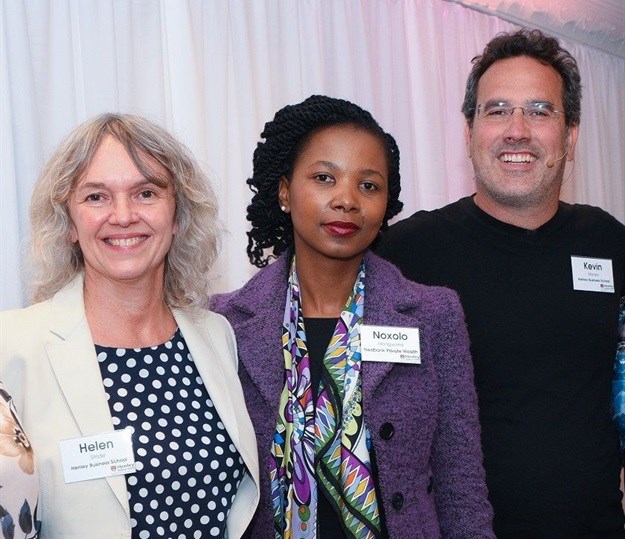
"One of the biggest benefits is what happens to the MBA students themselves," says Professor Kevin Money. "They are taken out of their comfort zone, to a new country to meet and work alongside different people who are dealing with real issues. This allows them to learn, grow and develop as better business leaders."
It began in 2007, with 14 students and two projects: NICRO and TSiBA Education. Since then, 69 NGOs and NPOs have benefitted. Developed by Professor Money and Jon Foster Pedley – now the dean and director of Henley Business School Africa, the programme is based on a module which looks at Reputation and Responsibility. During the project, the business executive ‘students’ use an academic model which takes a closer look at the consequences of behaviour in order to understand cause and reputation. Reputation and relationships are important in any strategy for sustainability, whether a JSE listed business or an NGO and this model has been used by numerous companies, governments and charities globally to build trust in stakeholder relationships.
Last month, a total of 24 executive MBA students from Henley visited Cape Town to work alongside four NGOs for a week, culminating in presentations together with recommendations to Breadline Africa, Inclusive Education, The Trauma Centre and Usiko Stellenbosch. Ahead of the field trip, students spend around six weeks preparing for the project.
Although the marked and moderated assignment is framed within the Reputation and Responsibility module, the specific projects are co-created with the NGOs who decide on which stakeholder group they want to focus on. "Students work in diverse fields back home, from telecoms through to healthcare and finance, so are able to bring a different business perspective. Using evidence based research, they help NGOs identify the challenges they face around stakeholders – whether staff, donors or beneficiaries – reflect on what is working and where improvements can be made," explains Money.
The programme also helps benchmark the local NGOs work with international organisations so that partnership potential is audited. The biggest challenge for NGOs is funding and sustainability but, according the students, the resilience, resourcefulness and creativity is incredible.
Past student Noxolo Hlongwane, who did her MBA at Henley UK and travelled back home for the project, says it made her a better leader, manager and strategist. Now head of philanthropy at Nedbank Private Wealth, she says, "During the project we were able to fuse our different learnings and were given an opportunity to apply our skills and positively contribute to the NGOs. This hands-on experience was invaluable and it made me more sensitive to the people aspect of business."
This is backed up by comments from past and current students who are unanimous about how the programme re-evaluated their thinking and changed them. All agreed it was a humbling, yet inspiring, experience.
According to Nuraan Osman, director of Ihata Shelter, "Being able to engage with students who know so much about business but who seek to help rather than judge, was not only enlightening but also super empowering." Nikki Munro of the Pinotage Youth Development Academy agrees, "Every conversation with the students and Henley was a learning one and we continue to feel the benefits of their interaction."
It may be down to business to develop sustainable CSI projects and work towards creating a better life for everyone but as Dr Helen Stride, MBA subject leader says, "In our materialistic world, the NGOs give our life meaning and provide a moral compass. We don’t believe we can really teach leaders to be more responsible. However, by allowing them to immerse themselves in organisations that are underpinned by a very different set of values, the process is life-changing. Working alongside NGOs whose primary focus is on service to others and not profit, who are working with some of the biggest social challenges facing South Africa, allows the students to get in touch with their latent idealism and become better business men and women as a result."
At a recent 10-year celebration event of the Henley programme in South Africa, Money thanked the participating NGOs for their cooperation, for opening up, having their organisations scrutinised and for sharing their stories. "The project is fairly invasive and we do interview and interrogate. It‘s very hands on and is not simply about applying the theory, we get involved and it touches our lives. It takes courage to be vulnerable and open up for both the NGOs and the students and we look forward to the future where through our collaboration we can learn more from the NGO sector in South Africa."